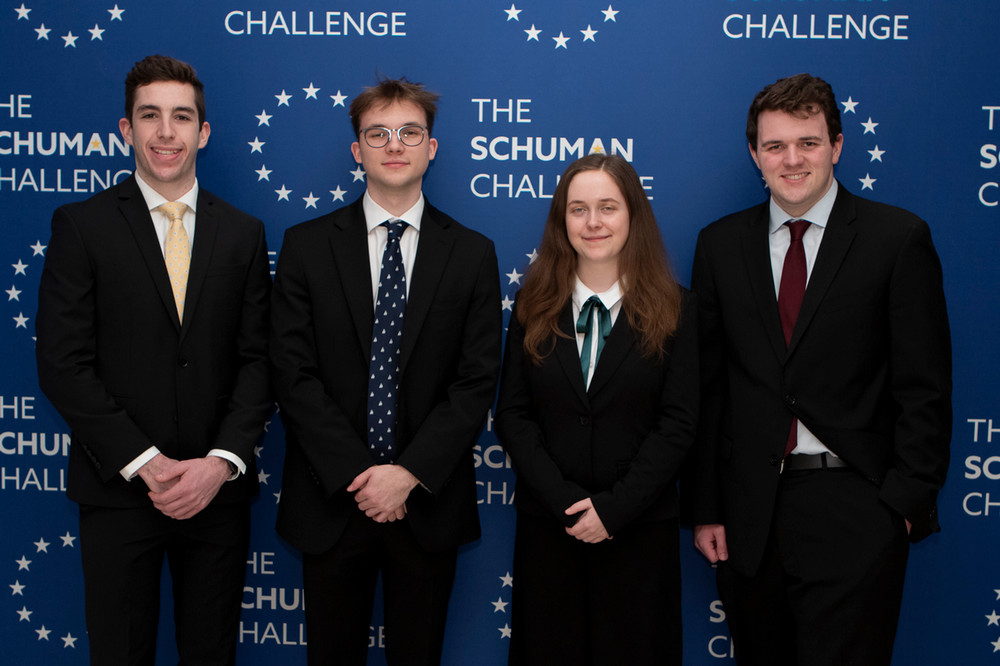JMU students engage with European policymakers
The Schuman Challenge: Students present proposal for EU-US-Latin American Technology Cooperation at EU delegation
News
SUMMARY: Political Science and International Affairs students develop transatlantic policy proposal. In spring 2024, they delivered their proposal for EU-US-Latin American cooperation on secure internet access at the Delegation of the EU to the U.S. in Washington, D.C.
In April, for the sixth consecutive year, a team of JMU Political Science and International Affairs students participated in the Schuman Challenge at the Delegation of the European Union to the United States in Washington, D.C.
The Challenge is an annual invitational event that brings together teams of undergraduates from across the country. The 2024 edition featured 29 universities from 18 U.S. states. Each year, teams develop policy proposals aiming to deepen transatlantic cooperation. This year, the Delegation tasked teams with developing proposals addressing: “How can the EU and the US more effectively engage the Latin American and Caribbean region?”
In Washington, JMU’s team presented a proposal to expand secure internet access in Latin American countries and protect Latin American network users from malicious online actors. The proposal, focused on trilateral (EU-US-LAC) cooperation and involving cutting-edge Open radio access network technology, was the result of months of preparation and faculty feedback.
Reflecting on the lead-up to the event, Domingo Herraiz, a senior Political Science major, noted, “The most memorable component for me was the time we spent as a team, working out solutions to challenging contemporary issues.”
Teammate Bonnie Pohland, a junior International Affairs major added, “It was exciting to balance all of the competition's challenges, navigating breadth, depth, feasibility, and creativity. I enjoyed becoming an expert on the details of our policy, including financing mechanisms and telecommunications technology.”
The two-day event in D.C. included a first round of presentations and an opening reception on April 4, followed by a final round of presentations on April 5. EU deputy ambassador Michael Curtis emphasized the importance of “engaging with the next generation of foreign policy leaders like you and building bridges across the Atlantic.”
Senior International Affairs major J.P. Green appreciated the engagement with European policymakers, stating, “This was not a classroom exercise; I was presenting at the EU delegation on real-life matters.”
The event’s second day featured expert judges, inlcuding EU Ambassador to the U.S. Jovita Neliupsiene, Chief of Staff for the Assistant Secretary General of the Organization of American States La Celia A. Prince and three heads of Section from the Delegation: Adriana Brassart, Javier Sancho Velazquez and Michelangelo Margherita.
“The professionalism and quality of all the proposals and the competition were wonderful,” remarked Herraiz after returning to Harrisonburg. The 2024 competition reinforced the Political Science department's long-standing commitments to experiential learning and transatlantic relations, which are featured, among other places, in its Florence-based M.A. program in political science with a concetration in EU Policy Studies.
